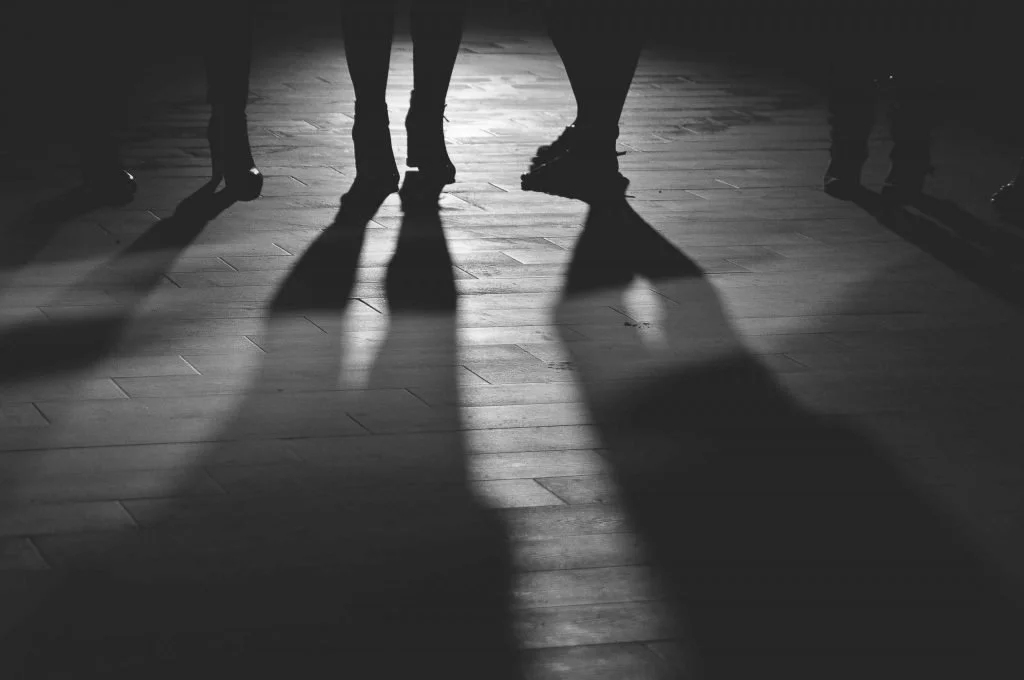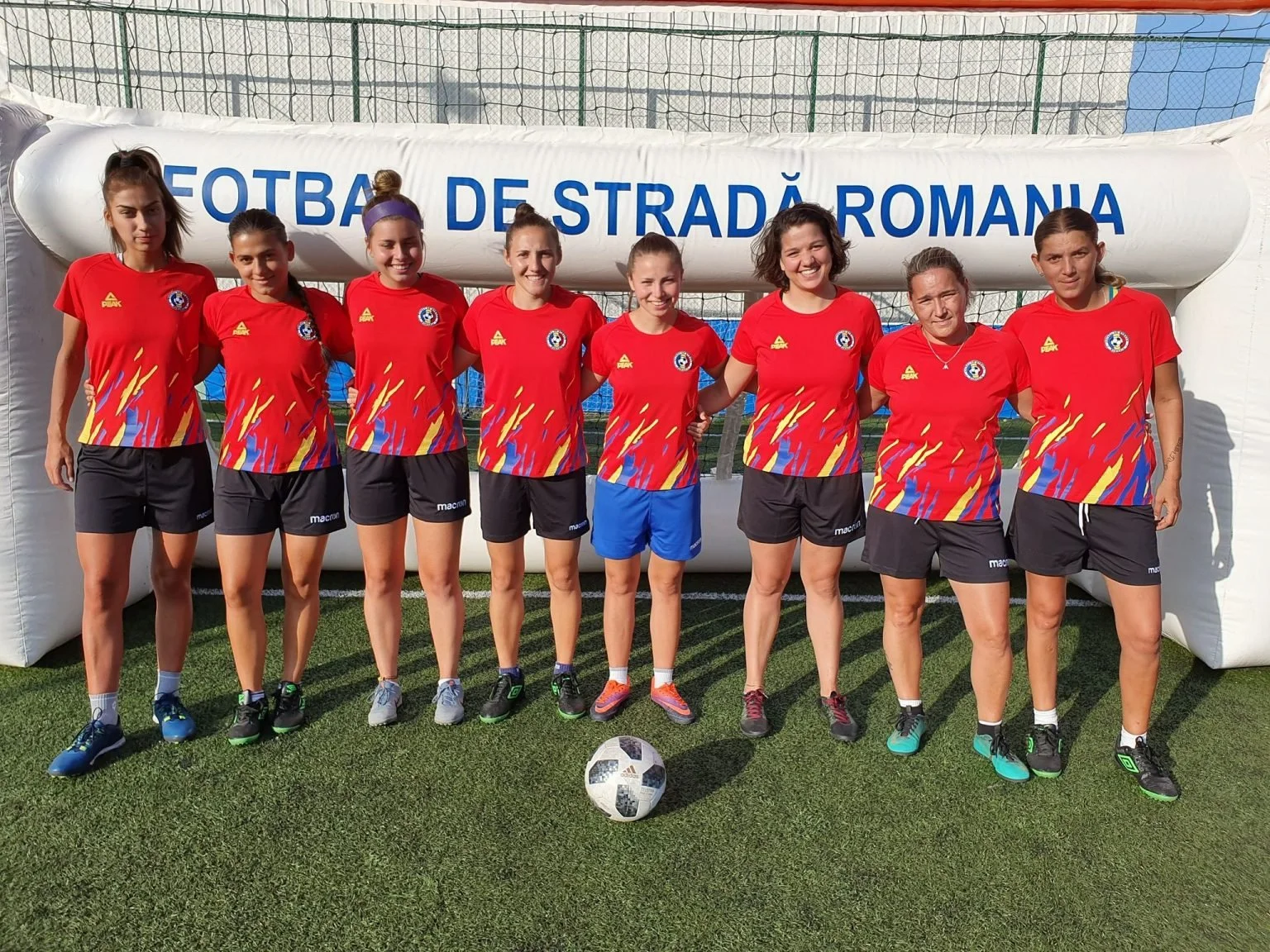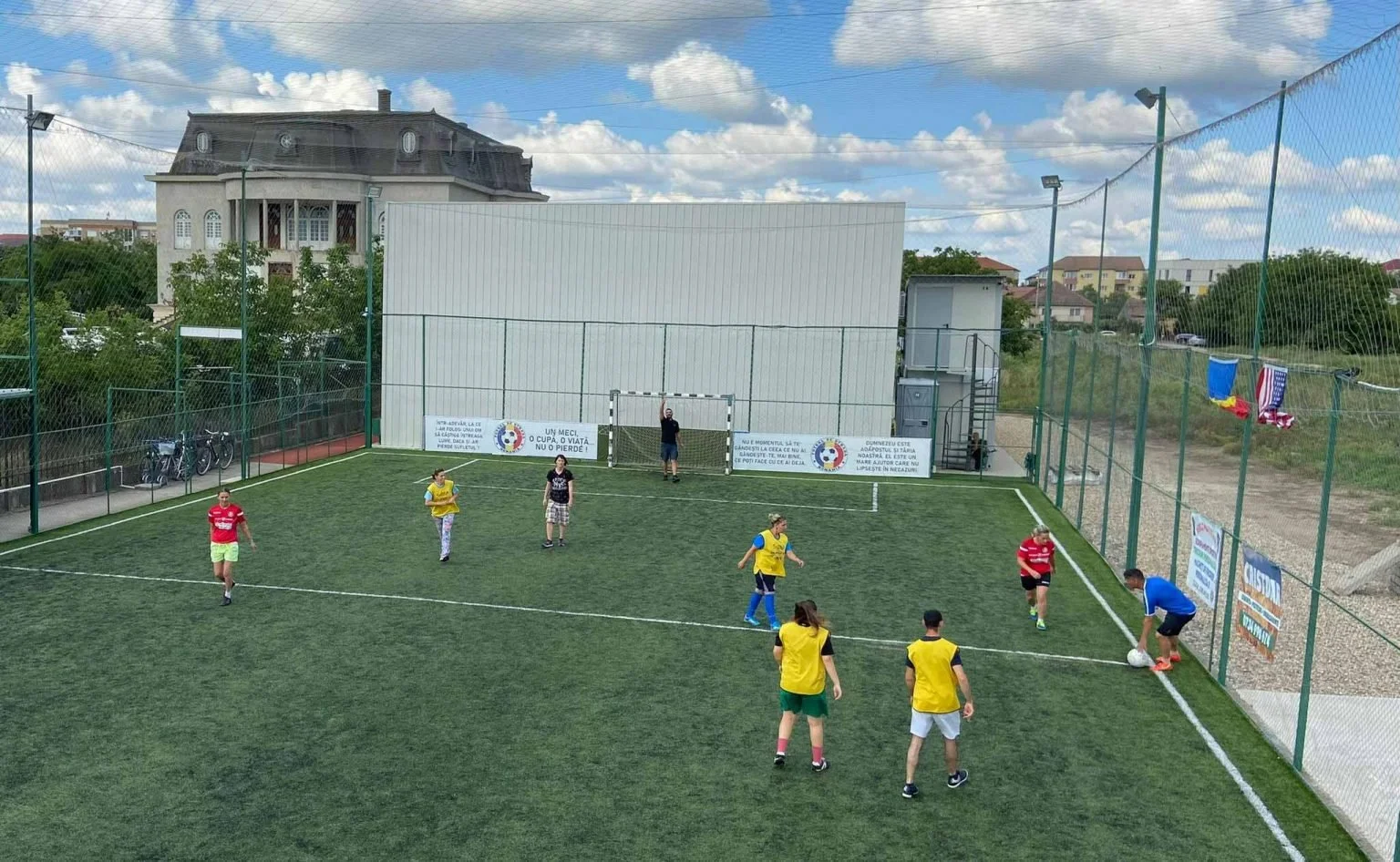More Than A Game: Romania
FOOTBALL TRANSFORMING WOMEN’S LIVES IN ROMANIA
Our Romanian partner, Clubul Sportiv Fotbal De Strada Metanoia have brought teams to the Homeless World Cup since Melbourne in 2008. They brought a women’s team for the first time to the Homeless World Cup in Cardiff in 2019.
This is part of our More Than a Game series, where we highlight how our Street Football Partners are using football to transform their communities.
[Some names in this article have been changed to protect individuals’ identities.]
“I WASN’T BEATEN BY THE POLICE”
In Romania police brutality towards people who are homeless is common, according to Mihai Rosus, who works for our partner Clubul Sportiv Fotbal De Strada Metanoia.
Mihai and the team support people who are homeless by helping them access legal advice, giving them an opportunity to play football, build a support network as well as giving them a hot meal at the end of every session. They have even been successful in helping people to bring charges against the police.
However, it was a warning sign for Mihai when one girl who had been coming along to their sessions said: “I wasn’t beaten by the police.”
Over the previous few weeks, the same eight or nine girls started coming along each week to watch as the men played.
One day one of the girls turned up with a black eye, he assumed she had been attacked by the police, but when he asked, she was nervous to say anything.
When he was trying to find out what happened, she didn’t want to answer, the only thing she said was: “I wasn’t beaten by the police”.
Mihai started to suspect that the man who came with her wasn’t her boyfriend, but her pimp.
Wanting to make sure she was ok and to get to the bottom of what was going on, he asked the man to go and get something to drink, giving them precious time alone.
“I only had a very short window to speak to her, but I found out that she was being frequently beaten up because she wasn’t making enough money for him.
“She was seeing two or three clients a day and making €30-40, and he wasn’t happy, he was telling her it wasn’t enough”
Mihai explained that many pimps had ongoing gambling addictions and used money earned by the girls to fuel their habits.
Mihai struggled to know what to do to support the girls, because they were heavily controlled by the pimps, he couldn’t contact them as their phones were monitored. He needed to be careful.
A NATIONAL SCANDAL
The moment came in 2017 when many of the pimps were sent to prison for grooming and forcing underage girls from orphanages into prostitution, Mihai explained. Some of the girls were as young as 11-12 and had disabilities. There was national outrage, and it was covered widely in the media.
With some of the pimps in prison, Mihai was able to finally speak to the girls without putting them in danger.
“That’s when I was able to hear the girl’s real stories. What was happening in their lives was terrifying. I needed to do something to get them off the streets.”
One of the stories he heard was Maria Magdalena’s (not her real name).
MARIA MAGDALENA
Abandoned by her parents as a baby, Maria Magdalena grew up in an orphanage. She was regularly bullied by the older children and was often beaten up.
When she went to school other children refused to play with her, leaving her out because she was different to them. She didn’t have a family.
At the orphanage, physical abuse by other young people also became sexual abuse.
Between the age of 14 and 15 she tried to commit suicide on multiple occasions. She felt like nobody cared or loved her and nobody wanted her to be around.
| Image: Gilles Lambert
When she was 16, Maria got a message from Dumitru (not his real name) on Facebook. He looked smart, wore expensive clothes, and was pictured in various photos with expensive cars. They started talking and he began taking her out for nice meals, giving her presents and making her feel valued.
After two weeks, he even asked her to marry him. She couldn’t believe it. Maybe finally she had found someone who loved her.
But another two weeks later he said: “If you really love me, you will help me make money, you will do this by sleeping with these men.”
After only six weeks, Maria was trapped and for two years she was on the street, forced into prostitution and to have sex with ten to twenty clients a day. Dumitru made €10 for each client she had sex with. Maria was beaten and raped if she refused to work.
‘LOVER BOY’
Dumitru is an example of a ‘lover boy’, young men who pose as rich and kind boyfriends to girls who have grown up in Romania’s orphanages or who have difficult family backgrounds. They often target girls who are vulnerable and have no family to turn to but no girls are safe from being groomed and ‘lover boys’ have also been known to target young girls in playgrounds at school.
The pimps don’t stop after one girl. They look for as many as possible to make more money.
According to the Global Slavery Index, there are currently an estimated 86,000 people living in modern slavery in Romania.
It’s hard to find accurate figures of the numbers of girls and women who have been forced into prostitution. Our partner estimates that in Europe there are more than 100,000 women and girls from Romania who have been pushed into sex work.
The ‘lover boys’ themselves often come from similar backgrounds, with difficult family situations growing up, bad experiences at school and lower degree crimes. Some of them have already been in prison.
The opportunity to ‘get rich overnight’ attracts many boys into becoming pimps.
Estimates from our Romanian partner suggest that one girl can make up to €100,000 per year, more than six times the average national salary.
Pimps, or ‘lover boys’ either work alone or as part of wider networks. It’s almost impossible to estimate the number operating in Romania, or globally.
“A GROWING PHENOMENON”
Mihai couldn’t turn to the authorities for help; “The police or the institutions in Romania don’t have good processes if these girls want to ask for help to get out.
“The issue is that these girls are so frightened, they often retract statements they make to the police. Because of this there are very few pimps who end up in jail.”
Despite the outcry in 2017, Mihai explains that little is being done to tackle the risk for young vulnerable women being forced into prostitution.
|Girls from Romania are regularly trafficked to Spain, Italy, Germany, Switzerland, the Netherlands, and England. Image: Emiliano Vittoriosi
“When the subject is in the media a lot, or there is focus from the EU, the authorities start to put new measures in place and do additional checks but it’s only in those small moments when they do something. Apart from that, nothing is happening.
“This is a growing phenomenon. After drugs this is the most profitable illegal act that can be done to make money. We are talking about billions of euros.
“Girls that are taken from Romania, if they are not happy with them, they sell them to the Albanians. Those guys they do horrific things to them. They really mess them up.
Everybody knows this. Everybody is afraid of ending up in those networks.”
Girls from Romania are regularly trafficked to Spain, Italy, Germany, Switzerland, the Netherlands, and England.
There are regular operations between Europol, EuroJust and national police forces across Europe in attempts to stop criminal gangs from operating.
In 2020, in a joint operation between the UK, EuroJust and Romania, officials arrested twenty one members of an organised criminal group.
In 2022, Europol identified and arrested criminals who had been operational since 2014 trafficking young women and girls from Romania to France and Spain.
‘THE STREET IS NOT YOUR HOME’
Wanting to do something to support victims and prevent future girls being targeted, Mihai and Clubul Sportiv Fotbal De Strada Metanoia set up a new programme in the western city of Timișoara.
|The programme is open to all women and girls, it’s not only for those who have been involved in prostitution. Image: Clubul Sportiv Fotbal De Strada
The programme, ‘The Street is Not Your Home’, offers girls an opportunity to come together and play football and build their self-esteem. It’s also open to women and girls who have not been victims of trafficking, but who need support reintegrating into society.
They are also taught how to cook, how to take care of themselves and supported to find a job.
The second stage of the programme, which is still in its infancy, offers girls shelter for two years while supporting them with key life skills. Mihai explains they are trying to raise money to build ten more apartments for vulnerable women.
They are also now running a programme aimed at educating girls in orphanages about the risk of ‘lover boys’ before they are targeted by the pimps.
Mihai explains, “once self-esteem is lost, it’s very difficult to recover from that. We’re trying to prevent other girls from being targeted and falling into this trap.”
|Now the girls have their own sessions. Image: Clubul Sportiv Fotbal De Strada
The programme has given girls like Maria a glimmer of hope that a new life is possible.
Maria Magdalena is now 22-years-old and is a regular at the programme, playing football with the team every week.
Team Romania celebrate at the European Life Goals Tournament in Utrecht
She even played for Romania at the European Life Goals tournament in Utrecht run by our Dutch partner, Life Goals Foundation.
Despite being a long way from trusting people and getting over her trauma, Maria has a new motto: “Never give up, it is always possible if you want it to be.”
Clubul Sportiv Fotbal De Strada Metanoia are our national partner in Romania. Based in the western city of Timișoara, it was initially set up to support men who were homeless and being targeted by the police.
Since 2017, they have run a specific programme supporting girls and women who are socially isolated and those who are victims of human trafficking and prostitution.
A BBC documentary explored the issue of girls being trafficked from Romania to the UK in January 2022.
Words: Rebecca Corbett





